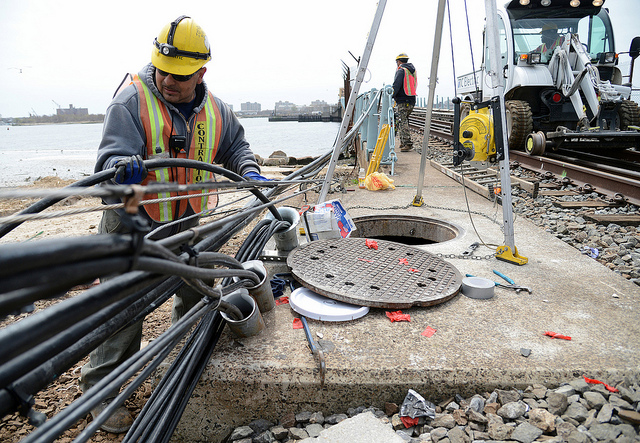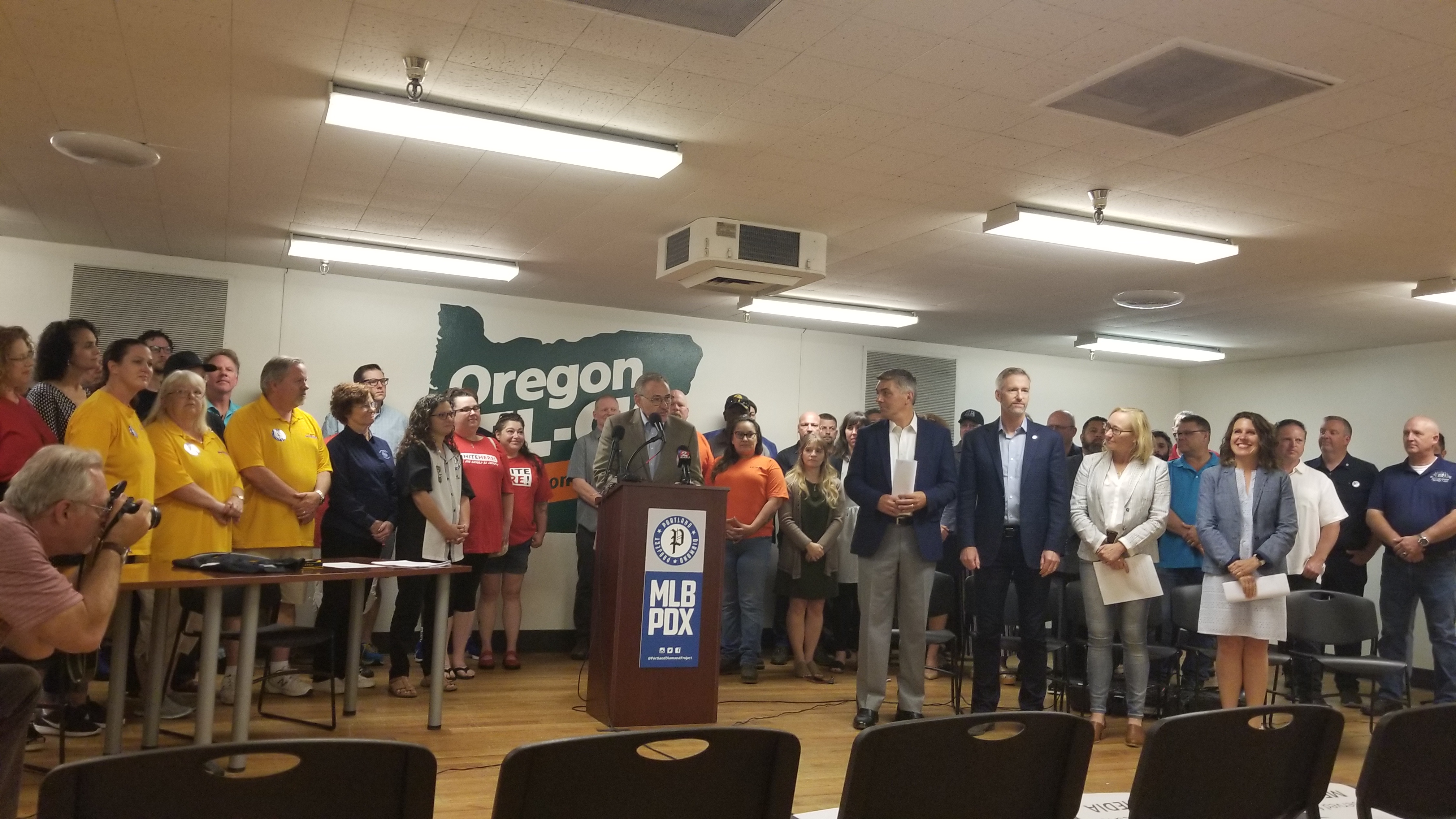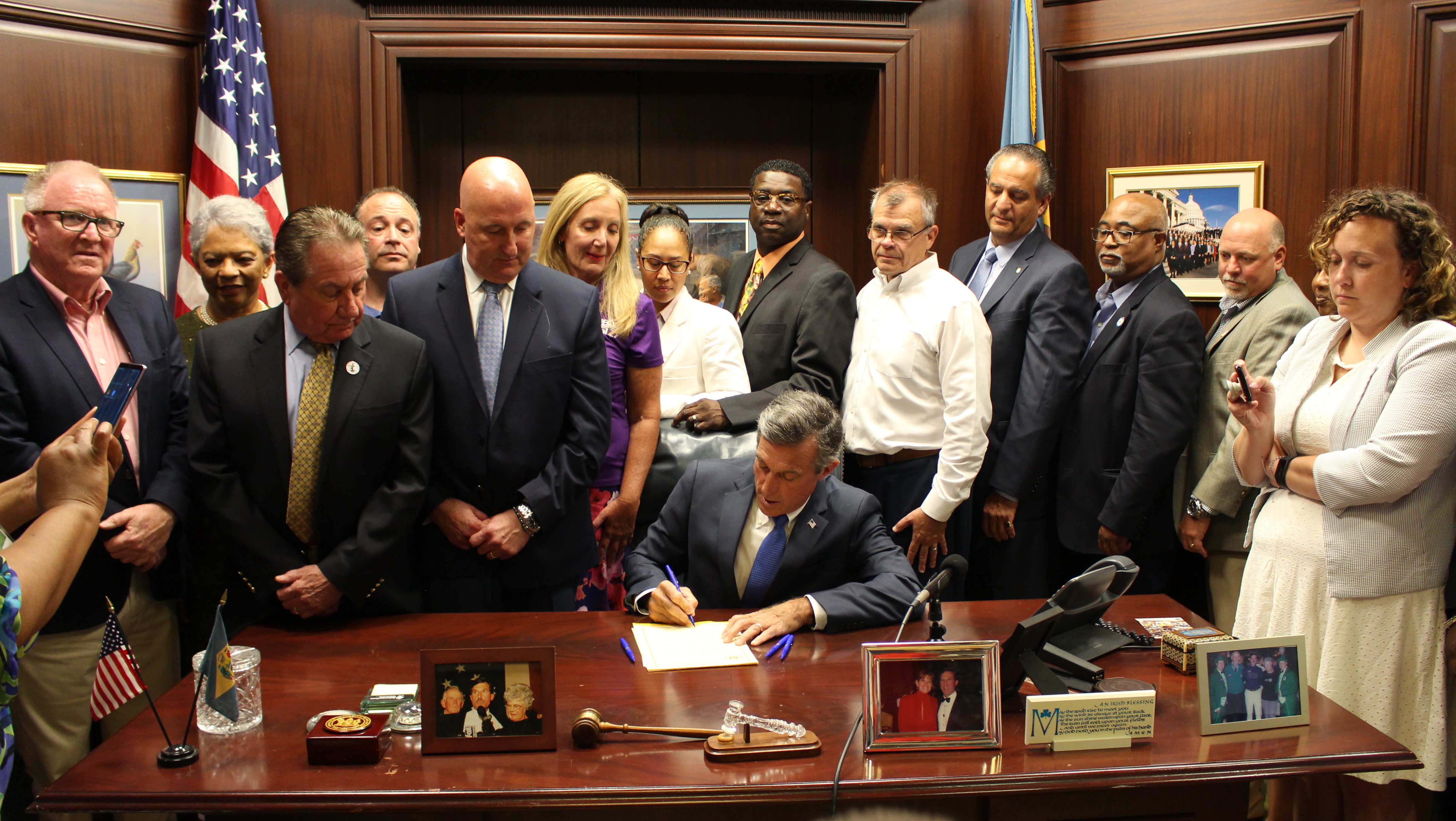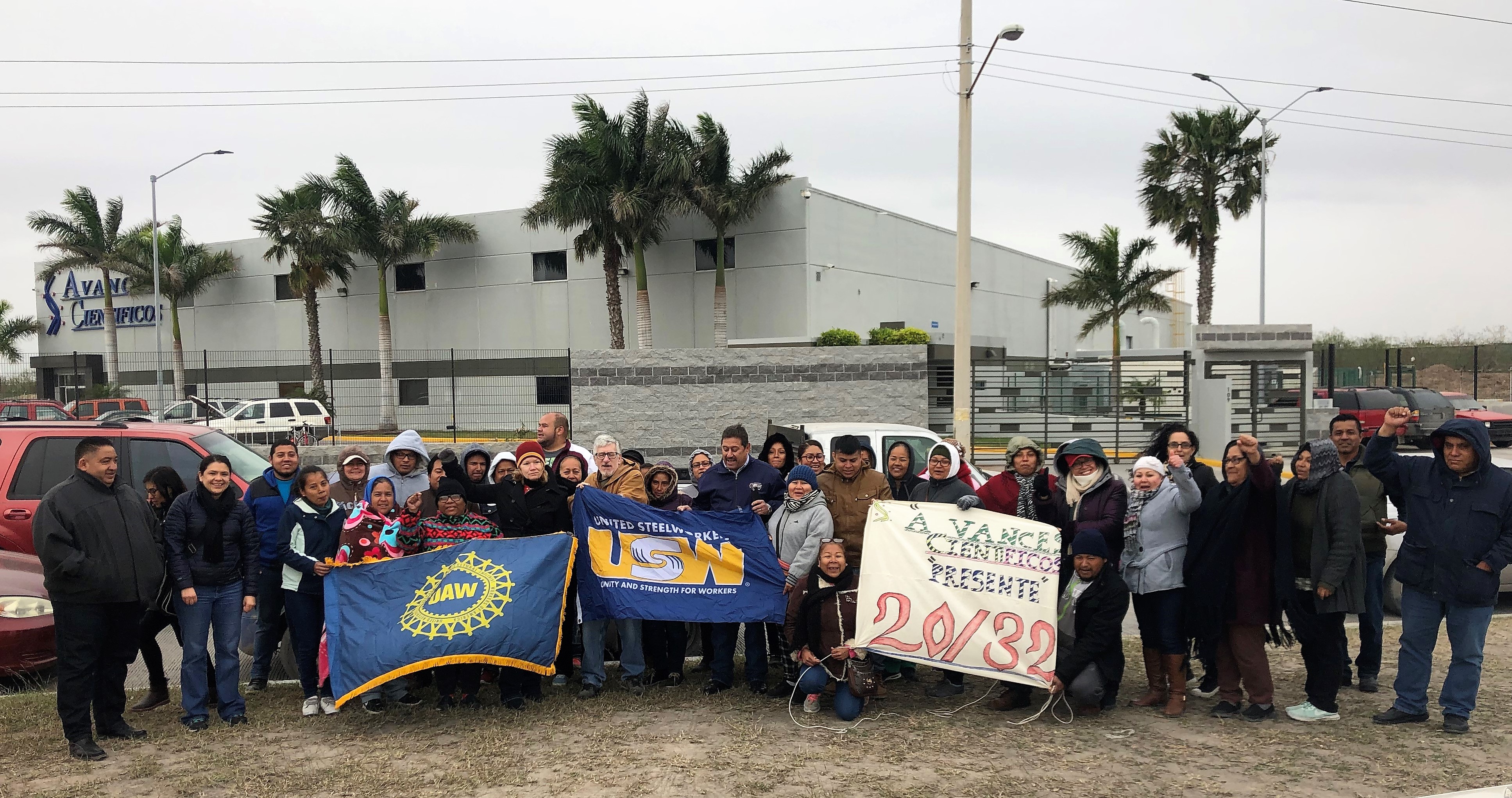 One hundred billion dollars is a lot of money. With that much cash you could buy four Starbucks lattes for every living human on the planet. (That’s 33 billion lattes in total, if you’re counting.) If coffee is not really your thing, consider buying every single NFL team three times over. Don’t like sports? You and the record-holding Powerball winner can compare piles of cash and together marvel at how yours is 63 times taller.
One hundred billion dollars is a lot of money. With that much cash you could buy four Starbucks lattes for every living human on the planet. (That’s 33 billion lattes in total, if you’re counting.) If coffee is not really your thing, consider buying every single NFL team three times over. Don’t like sports? You and the record-holding Powerball winner can compare piles of cash and together marvel at how yours is 63 times taller.
Or, if you are the federal government, you can pitch in your annual share of the cost to build and maintain our highway, water, mass transit, aviation and rail infrastructure. (It’s worth noting the actual amount we spend as a country is much higher, though states and local government chip in for most of it.)
But here’s the kicker: Even if you weigh your options and pick infrastructure over a monopoly on football, your $100 billion comes nowhere close to how much we should be spending each year if we want to achieve world-class infrastructure that boosts the country’s economy and grows the middle class. For our roads and bridges alone, we’re facing a backlog of $836 billion (that amounts to two complete bailouts of Greece, with some change to spare). Transit likely needs another $100 billion (can each of my fellow humans and I get another four lattes, please?), passenger rail around $28 billion, and let’s not forget our aging air and sea ports.
You would expect that someone in Congress has been tasked with figuring out how to pay for all of this, right? Well, not so fast.
In the House, raising funds for infrastructure falls under the jurisdiction of the Ways and Means Committee. As one might expect, they’ve put together subcommittees over the years to focus on many of our major national needs: health care, Social Security, tax policy, trade and so on. But when it comes to infrastructure, that hasn’t been the case.
So when we heard some members of Congress have been pushing for a new subcommittee singularly focused on infrastructure, we took note. It’s easy to understand why: Over the past eight years, after more than 400 hearings and thousands of witnesses brought before Ways and Means, just one hearing has been held on transportation funding and finance. A single, two-hour hearing in which each lawmaker is allotted five minutes to figure out how to pay for hundreds of billions of dollars in must-have infrastructure needs is not going to cut it.
More ...









 No matter when you are buying a new vehicle or for what purpose, you have the opportunity to use this substantial buying power to support working people. The
No matter when you are buying a new vehicle or for what purpose, you have the opportunity to use this substantial buying power to support working people. The  One hundred billion dollars is a lot of money. With that much cash you could buy four Starbucks lattes for every living human on the planet. (That’s 33 billion lattes in total, if you’re counting.) If coffee is not really your thing, consider buying every single NFL team three times over. Don’t like sports? You and the record-holding Powerball winner can compare piles of cash and together marvel at how yours is 63 times taller.
One hundred billion dollars is a lot of money. With that much cash you could buy four Starbucks lattes for every living human on the planet. (That’s 33 billion lattes in total, if you’re counting.) If coffee is not really your thing, consider buying every single NFL team three times over. Don’t like sports? You and the record-holding Powerball winner can compare piles of cash and together marvel at how yours is 63 times taller.



